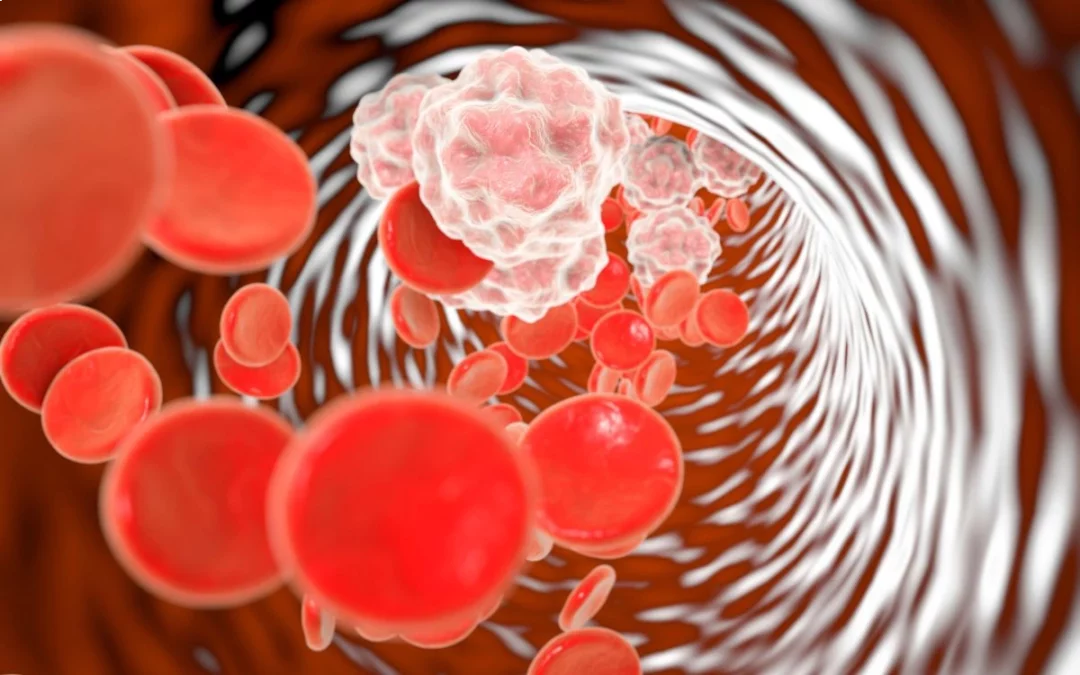The interplay between the immune system and metabolic processes has gained increasing attention in recent years. One of the key areas of this interaction is blood sugar regulation. Metabolic disorders, such as diabetes, not only affect glucose homeostasis but also have profound implications for immune function. Likewise, immune responses, including inflammation and cytokine signaling, can influence insulin sensitivity and glucose metabolism. Additionally, mitochondrial function plays a crucial role in immune and metabolic health. This article explores the bidirectional relationship between immune function, blood sugar regulation, and mitochondrial support, drawing on recent scientific findings.
The Role of Blood Sugar Regulation in Immune Function
1. Glucose as an Immune Fuel
Glucose is a critical energy source for immune cells, particularly during infections and inflammation. Macrophages, neutrophils, and lymphocytes exhibit increased glucose uptake when activated. Glycolysis, the process of breaking down glucose into pyruvate, is upregulated in pro-inflammatory immune responses, facilitating rapid energy production and supporting cell proliferation.
- Activated T cells undergo a metabolic switch to aerobic glycolysis (Warburg effect), similar to cancer cells, to sustain rapid proliferation and effector function.
- Neutrophils rely on glucose metabolism for the production of reactive oxygen species (ROS), which are essential for pathogen clearance.
- Dendritic cells and macrophages also exhibit glucose-dependent metabolic reprogramming when activated.
2. Hyperglycemia and Immune Dysregulation
Chronic hyperglycemia, as seen in diabetes, impairs immune function and increases susceptibility to infections. Several mechanisms contribute to this immune dysfunction:
- Impaired Neutrophil Function: High glucose levels reduce neutrophil chemotaxis, phagocytosis, and oxidative burst, leading to an increased risk of bacterial infections.
- Altered Cytokine Profiles: Hyperglycemia promotes a pro-inflammatory state, characterized by increased levels of tumor necrosis factor-alpha (TNF-α), interleukin-6 (IL-6), and interleukin-1 beta (IL-1β), which contribute to chronic low-grade inflammation.
- Dysfunctional Adaptive Immunity: T cell activation and differentiation are impaired under hyperglycemic conditions, reducing the body’s ability to mount effective immune responses.
- Increased Susceptibility to Infections: Poor glycemic control is associated with higher rates of pneumonia, urinary tract infections, and sepsis.
The Impact of the Immune System on Glucose Metabolism
1. Inflammation-Induced Insulin Resistance
Chronic inflammation is a key driver of insulin resistance. Pro-inflammatory cytokines, such as TNF-α and IL-6, disrupt insulin signaling pathways by:
- Inhibiting insulin receptor substrate (IRS) phosphorylation, impairing downstream signaling.
- Increasing free fatty acid release from adipose tissue, which interferes with insulin sensitivity.
- Enhancing oxidative stress and endoplasmic reticulum (ER) stress, which contribute to beta-cell dysfunction.
2. The Role of Immune Cells in Metabolic Homeostasis
Certain immune cells play regulatory roles in metabolic tissues, influencing glucose homeostasis:
- Macrophages: In lean individuals, anti-inflammatory M2 macrophages help maintain insulin sensitivity. In obesity, a shift towards pro-inflammatory M1 macrophages contributes to insulin resistance.
- Regulatory T Cells (Tregs): Tregs promote insulin sensitivity by reducing inflammation in adipose tissue and the pancreas.
- Innate Lymphoid Cells (ILCs): ILCs help balance immune responses in metabolic tissues, impacting insulin sensitivity.
Mitochondrial Support and Immune-Metabolic Function
1. Mitochondria as the Powerhouse of Immune and Metabolic Health
Mitochondria play a central role in immune cell activation, energy metabolism, and oxidative stress regulation. Their function is critical for both adaptive and innate immunity:
- Energy Production: Mitochondria generate ATP through oxidative phosphorylation, which fuels immune and metabolic processes.
- ROS and Immune Signaling: Mitochondria produce reactive oxygen species (ROS) that influence immune cell activation and pathogen clearance.
- Metabolic Adaptation: Mitochondria support metabolic flexibility by balancing glycolysis and oxidative phosphorylation based on immune and metabolic needs.
2. Mitochondrial Dysfunction and Its Consequences
Mitochondrial dysfunction is linked to both immune and metabolic dysregulation:
- Increased Inflammation: Dysfunctional mitochondria release damage-associated molecular patterns (DAMPs), triggering chronic inflammation.
- Insulin Resistance: Impaired mitochondrial function in muscle and liver cells reduces glucose utilization, leading to insulin resistance.
- Fatigue and Metabolic Slowdown: Poor mitochondrial efficiency results in lower energy availability and metabolic sluggishness.
3. Strategies to Support Mitochondrial Health
- Nutritional Support:
- Coenzyme Q10, alpha-lipoic acid, and magnesium enhance mitochondrial energy production.
- Polyphenols (e.g., resveratrol, curcumin) reduce oxidative stress and improve mitochondrial function.
- A ketogenic or low-carb diet can promote mitochondrial biogenesis and efficiency.
- Exercise and Hormesis:
- Regular physical activity stimulates mitochondrial biogenesis and enhances metabolic resilience.
- Intermittent fasting supports autophagy, removing dysfunctional mitochondria.
- Stress Reduction and Sleep Optimization:
- Chronic stress impairs mitochondrial function; meditation and mindfulness support mitochondrial efficiency.
- Quality sleep promotes mitochondrial repair and immune balance.
Conclusion
The immune system and metabolic pathways are intricately linked, with blood sugar regulation and mitochondrial function playing crucial roles in immune health. Dysregulation in any of these systems can lead to chronic inflammation, insulin resistance, and increased susceptibility to infections. By adopting dietary, lifestyle, and pharmacological strategies, individuals can optimize metabolic and immune health, reducing the risk of chronic diseases.
References
- Hotamisligil, G. S. (2017). “Inflammation, metabolism, and immunometabolic disorders.” Nature, 542(7640), 177-185.
- Shi, H., & Chi, H. (2019). “Metabolic control of T-cell immunity: Implications for immune regulation and precision immunotherapy.” Signal Transduction and Targeted Therapy, 4(1), 13.
- Saeed, S., Quintin, J., Kerstens, H. H., et al. (2014). “Epigenetic programming of monocyte-to-macrophage differentiation and trained innate immunity.” Science, 345(6204), 1251086.
- Petersen, M. C., & Shulman, G. I. (2018). “Mechanisms of insulin action and insulin resistance.” Physiological Reviews, 98(4), 2133-2223.
- Newsholme, P., Cruzat, V., Keane, K., Carlessi, R., & de Bittencourt, P. I. (2016). “Molecular mechanisms of ROS production and oxidative stress in diabetes.” Biochemical Journal, 473(24), 4527-4550.


